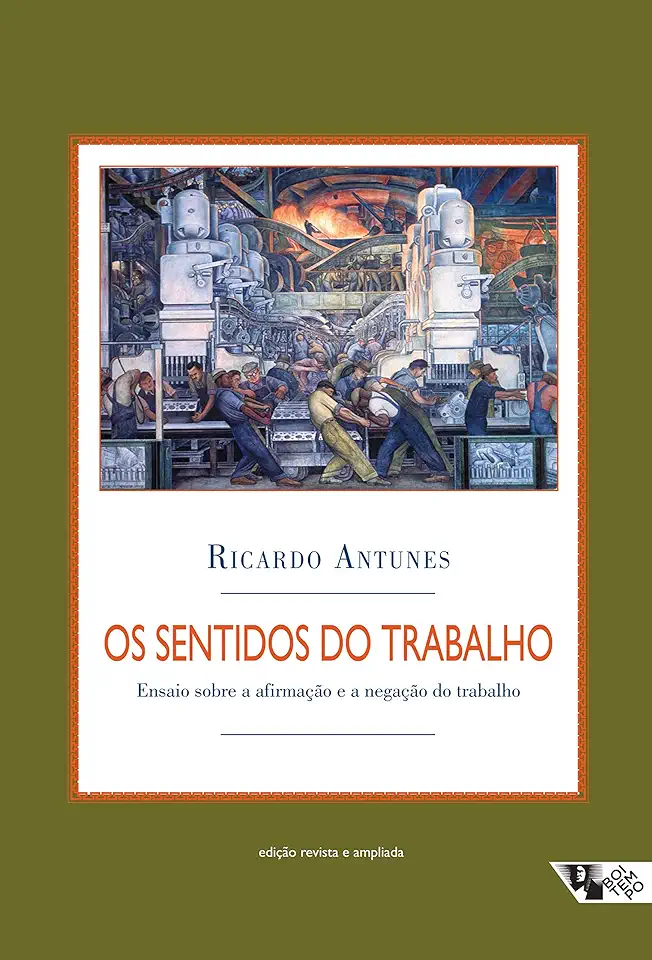
The Senses of Work - Ricardo Antunes
The Senses of Work: Understanding Labor in the Modern Age
In his groundbreaking book, "The Senses of Work," renowned sociologist Ricardo Antunes offers a comprehensive and thought-provoking analysis of labor in the modern age. Drawing on a wealth of empirical research and theoretical insights, Antunes argues that work is not merely an economic activity but a complex social phenomenon that shapes our identities, relationships, and experiences.
Work as a Social Construct
Antunes begins by challenging the traditional view of work as a purely economic activity. He argues that work is not simply a means to earn a living but a fundamental aspect of human existence that shapes our social interactions, cultural values, and psychological well-being. Through work, we not only produce goods and services but also construct our identities, establish social connections, and contribute to the broader society.
The Changing Nature of Work
Antunes then examines the changing nature of work in the modern era. He argues that the rise of globalization, technological advancements, and flexible labor markets have transformed the traditional employment landscape. These changes have led to increased job insecurity, wage inequality, and a decline in workers' rights. Antunes also highlights the growing phenomenon of precarious work, characterized by low pay, few benefits, and limited job security.
The Senses of Work
At the heart of Antunes' analysis is the concept of the "senses of work." He argues that work can be experienced in multiple ways, each with its own unique set of meanings and implications. These senses of work include:
- The instrumental sense: This refers to the economic dimension of work, where work is seen primarily as a means to earn a living and accumulate wealth.
- The ethical sense: This refers to the moral and ethical dimensions of work, where work is seen as a way to contribute to society and fulfill one's potential.
- The political sense: This refers to the power dynamics and social relations that shape work, where work is seen as a site of struggle and resistance against exploitation and oppression.
- The aesthetic sense: This refers to the creative and expressive dimensions of work, where work is seen as a way to express oneself and find meaning and fulfillment.
The Future of Work
Antunes concludes by reflecting on the future of work and the challenges and opportunities that lie ahead. He argues that the changing nature of work requires a fundamental rethinking of our economic and social policies. Antunes calls for a more just and equitable distribution of wealth, increased job security, and greater protections for workers' rights. He also emphasizes the importance of recognizing the multiple senses of work and creating work environments that foster creativity, fulfillment, and social solidarity.
Conclusion
"The Senses of Work" is a must-read for anyone interested in understanding the complex and multifaceted nature of work in the modern age. Antunes' insightful analysis provides a valuable framework for rethinking our relationship to work and envisioning a more just and humane future.